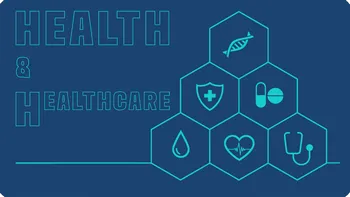Medical interpreters have to adhere to standards while managing deviations, balancing role boundaries, confidentiality, impartiality, and patient care.
Medical interpreters face the complex task of adhering to the established Medical Interpreting Standards of Practice while encountering circumstances that may require them to deviate from their traditional roles. This challenge demands a delicate balance of experience, expertise, and ethical decision-making to ensure effective communication and optimal patient care.
The Medical Interpreting Standards of Practice encompass three key areas:
1. Accuracy:
Interpreters strive to enable precise understanding between speakers. They faithfully convey all messages without altering or excluding any content, even if it may seem redundant, irrelevant, or impolite. Interpreters replicate the register, style, and tone of the speaker unless there is no equivalent in the patient’s language, in which case they seek clarification or simpler explanations. They inform all parties that everything said will be interpreted and manage communication flow by requesting pauses or slower speech when necessary. Any errors in interpretation are promptly corrected, and interpreters openly acknowledge the need for clarification.
2. Confidentiality:
Maintaining confidentiality is essential in healthcare interactions to preserve trust and respect privacy. Interpreters treat all information obtained during their professional duties as confidential within the treating team, following applicable disclosure regulations. They prioritize confidentiality and refrain from sharing information outside the treating team without patient consent or legal obligations. Interpreters avoid discussing a patient’s case with family or community members without explicit permission and ensure that written patient information remains protected.
3. Impartiality:
Interpreters uphold a neutral and unbiased stance, free from personal preferences or judgments. They avoid expressing personal feelings through their words, tone of voice, or body language. Interpreters disclose any potential conflicts of interest and may withdraw from assignments if necessary, such as when interpreting for a family member or close friend. Upholding impartiality allows interpreters to approach their work with fairness and objectivity.
While medical interpreters strive to adhere to these standards, they often encounter situations that challenge their ability to do so. One common deviation arises when interpreters receive requests from healthcare providers or clinic staff for additional tasks beyond their traditional roles. These requests may occur when patients are unable to read or write, seem to have difficulty understanding information, require a witness for medical procedures, or when there is a pre-existing relationship between the interpreter and the provider or clinic.
As a result, interpreters are sometimes asked to perform tasks that extend beyond interpretation alone. For example, they may assist patients in filling out paperwork, explain complex consent forms, accompany patients to medical procedures, or find ways to help patients better understand certain medical matters. While these tasks aim to facilitate effective communication and patient comprehension, they can blur the boundaries of the interpreter’s role and introduce potential challenges in maintaining impartiality and confidentiality.
Another common situation occurs when interpreters have a history with the healthcare provider or clinic, leading to requests for assistance in various aspects of patient care. For instance, providers may ask interpreters to provide explanations or clarifications in the laboratory setting. These situations can put interpreters in a challenging position as they engage in conversations with patients that may involve discussions about their current health situation, further exposure of health information, or patient requests. Such requests often take interpreters out of their usual roles and place them in a difficult position during subsequent appointments with the provider.
Interpreters’ familiarity with providers, either through previous work or long-standing relationships, can also impact their ability to maintain a neutral role. This familiarity sometimes leads providers to make requests that go beyond the established boundaries of medical interpreting, compromising the standards in place. Providers may ask interpreters to modify their statements to make them more understandable or to explain procedures themselves, knowing that the interpreter is familiar with the topic. Consequently, when interpreters are acquainted with the provider and the healthcare issue, there is a higher likelihood of deviating from the established role boundaries of medical interpreting. This also increases the risk of interpreters sharing significant health-related information without oversight or review for accuracy.
Furthermore, interpreters may deviate from their roles based on their personal goals or the desire to address specific challenges. They may intentionally change the message between the patient and provider, going against the established standards. For example, interpreters may aim to improve clarity, advocate for the patient, bring in outside knowledge, or maintain positive relationships between patients and providers. In these situations, interpreters may soften offensive language, adjust emotional tones, or explain the patient’s response to the provider. While these deviations may arise from good intentions, they do challenge the impartiality and accuracy standards set for medical interpreting.
Navigating these deviations is a complex task for medical interpreters, requiring them to carefully balance their role boundaries and the preservation of patient confidentiality. Interpreters must exercise sound judgment and decision-making to maintain effective communication while upholding the principles of accuracy, confidentiality, and impartiality. By addressing these challenges, medical interpreters contribute to the facilitation of accurate, confidential, and impartial communication, enhancing the patient-provider relationship and ensuring culturally sensitive care.







